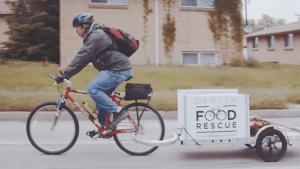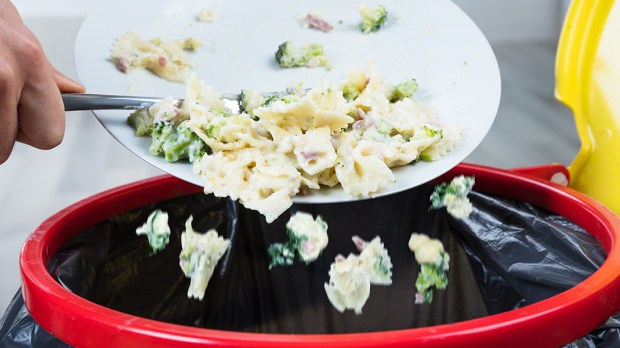This past October 16 was International World Food Day, dedicated to the fight against hunger and wasting food. It’s a very timely reminder of a serious situation; according to the USDA, in the United States an estimated 30-40% of the food supply goes to waste each year, totaling approximately 133 billion pounds of food. That’s clearly a problem! Practically speaking, what can we do at home to be more responsible with our food use, and consequently with the planet, our “common home,” to use an expression dear to Pope Francis?
“Stop wasting food” is easy to say, but sometimes difficult to put into practice. How can we manage to avoid throwing food away as much as possible at home? Pope Francis himself spoke on the subject, urging a real “examination of conscience” in the face of this all-too-entrenched habit of wasting food. “Whenever food is thrown out, it is as if it were stolen from the table of the poor, from the hungry!” he said in 2013 during a general audience.
Here are five simple tips that you can easily apply on a daily basis…
1STORE YOUR FOOD PROPERLY
After shopping, remember to store your refrigerated food in such a way that the air circulates well. Once you open the packaging, remember to put the remaining food in a sealable container or bag that will prevent its degradation and will also prevent it from giving off or picking up an unpleasant smell. Also, organize your fridge intelligently, instead of just shoving everything in however it fits. Inside the refrigerator, the temperature is not homogeneous. Use the top shelf for poultry or raw fish, the central part for dairy products, and the lower part for vegetables. Finally, clean your refrigerator regularly to prevent the growth of bacteria.
2MEASURE OUT THE PORTIONS WELL
Don’t have eyes bigger than your stomach. If you’re afraid of not getting enough, remind yourself you can serve yourself a second helping. When you’re preparing a meal and you know there will be eight of you at the table, relax and don’t make it for ten. Or plan to eat leftovers! In places such as chain restaurants where portions are not always proportionate, ask for a small plate if the quantities seem too large. Before going on vacation, avoid opening products that you’re not sure you can finish. Finally, when going out to dinner, don’t hesitate to ask for a doggy bag.
3CHECK THE EXPIRATION OR “BEST BY” DATE, AND FREEZE THE EXCESS
Pay attention to the dates on the food in your pantry, and choose to serve the items that are the closest to their expiration or “best by” date, bearing in mind that many products, such as yogurts, are edible after the shelf life expiration date. When you cook, don’t hesitate to freeze the leftovers: it is an excellent way to preserve them.
4TRANSFORM YOUR LEFTOVERS
Be imaginative, of course! It is quite understandable if you don’t want to eat stale bread at breakfast, but you can turn it into French toast, bread pudding, breadcrumbs, or croutons. As for fruits that are a little too ripe for your taste, please don’t throw them out; offer them a second chance by turning them into smoothies, jams, compotes, coulis, or some dessert…
5DONATE FOOD YOU’RE NOT GOING TO USE
Many cities and towns have soup kitchens or pantries that accept donations of unopened food that has not passed its expiration date. If you have overestimated your needs, this is a smart way to share your blessings with others and make a generous gesture.
These are just a few practical steps we can take to avoid waste. With a bit of creativity and organization, you can come up with more, such as making a meal plan to guide grocery shopping and reduce impulse buying of food you won’t get around to eating, or searching the internet for recipes based on the food you have on hand and can’t think of how to use. It may not seem like it makes a big difference, but in the long run, these simple measures will help us save money, share more, and be more responsible stewards of creation.

Read more:
How the “zero-waste” trend can help you live ethically and save money

Read more:
Denver Food Rescue is on a mission to feed everyone in need

